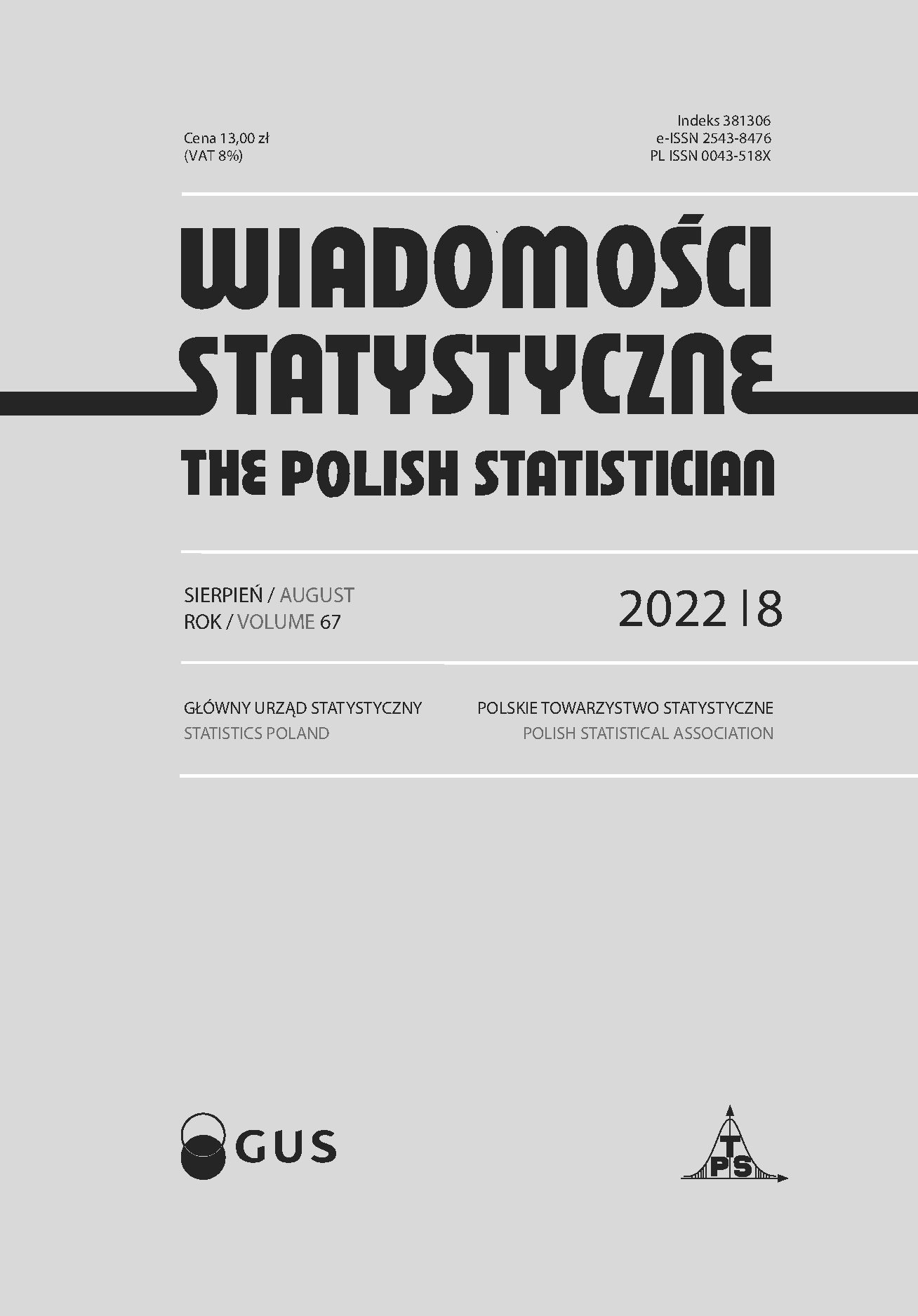Wpływ subiektywnej oceny sytuacji materialnej na zadłużenie gospodarstw domowych
Influence of the subjective assessment of households’ financial situation on their debt
Author(s): Norbert Duczkowski, Lubomir SłowikSubject(s): Socio-Economic Research
Published by: Główny Urząd Statystyczny
Keywords: subjective assessment of the financial situation; financial wellbeing; debt; households
Summary/Abstract: The determinants of household debt have been the subject of many scientific studies where income was identified as the key factor influencing debt. This is because income determines creditworthiness in banks. At the same time, behavioural finance research highlights the importance of subjective factors for individuals’ financial decision-making. The aim of this paper is to verify the influence of the subjective assessment of households’ financial situation (also known as financial wellbeing) on their debt. The research was based on secondary data for the years 2009–2020 published by Statistics Poland and the National Bank of Poland. The study used linear regression, where time series related to debt were the dependent variables, and time series related to income and financial wellbeing were the explaining variables. The study confirmed that taking into account the subjective assessment of households’ financial situation allows more effective modelling of household debt than disposable income solely. The results also demonstrated that individuals assessing their financial situation as very good are more likely to get into debt than those who believe their material status to be average. Additionally, as the assessment of financial wellbeing improves, household debt in foreign currencies decreases.
Journal: Wiadomości Statystyczne. The Polish Statistician
- Issue Year: 67/2022
- Issue No: 08
- Page Range: 41-63
- Page Count: 23
- Language: Polish

